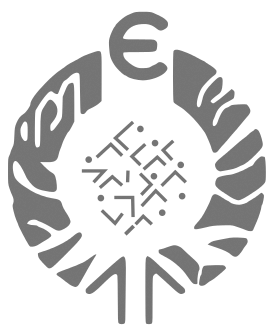Information translated by Google translate ![]()
BASIC DATA
Surface, 78,866 km²
Population, 10,610,055 h (2018)
Density, 134.5 h / km2
Capital, Praha (Prague)
Languages: Czech (official), Slovak.
Ethnic composition: Czechs 68.7%, Slovaks 1.4%, Poles 0.4%, Germans 0.3%, Ukrainians 0.5%, Other groups (Russians, Jews, Hungarians, Romanians, Gypsies) 28.7% (est. 2011).
Religions: Catholic 10.3%, Protestant 0.5%, Hussite (indigenous) 0.4%, other 9.4%, non-religious 34.2%, unanswered 45.2%.
Literacy rate, 99.9%
Human Development Index (HDI), 0,888 (UN-2018) (27th in the world).
Political system, parliamentary republic.
DEMOGRAPHIC INDICATORS
Birth rate, 9.3 ‰
Mortality rate, 10.5 ‰
Vegetative growth, -0.12%
Life expectancy at birth: men, 75.8 years; women, 81.9 years old (est. 2017).
ECONOMY
Agriculture: cereals, sugar beet, hops, flax, hemp, potatoes, fruits, tobacco.
Livestock: swine, cattle, sheep.
Mining: lignite, coal, anthracite, iron, gold, silver, copper, mercury, lead, zinc, graphite.
Industry: motor vehicles, metallurgy, machinery and equipment, glass and armament.
GDP per capita, $ 36,327 (2017)
Sectoral distribution of GDP:
• Agriculture, 2.5%
• Industry, 37.8%
• Services, 59.7% (2017 est.).
Foreign trade:
• Exports: machinery and transport equipment, computers and electronic products, chemical and manufactured products, and food.
152,000 million dollars
• Imports: transport machinery and equipment, computers, chemical and manufactured products, raw materials, fuels, food products, textile products.
140,000 million dollars (2016)
HISTORY (XX-XXI centuries)
1914: Under the direction of Thomas G. Masaryk, an independence movement was organized in Paris.
1918: The Republic of Czechoslovakia emerged, and the National Assembly elected President Masaryk.
1935: Masaryk resigned and was succeeded by Edvard Beneš, who made the country the most prosperous of the Danubian states.
1938: Germany occupied the Sudetenland, and E. Beneš had to resign, succeeding Dr. Hácha.
1939: Hitler forced Slovakia to separate from the Republic, occupied Prague and declared protectorates to Bohemia and Moravia. The provisional government chaired by Beneš was installed in London.
1939-44: In these years more than two million Czechs were interned in concentration camps, deported or exterminated; In the town of Lidice, the entire adult male population was executed.
1948: K. Gottwald assumed the leadership of the government, after the resignation of Beneš, he purged the Parliament, the political parties, the press and the University.
1948-53: The new Republic led by Gottwald embarked on the «construction of socialism» through the nationalization of the economic sectors, the five-year plans and the orientations of the Kremlin.
1968: Alexander Dubček succeeded Novotný as head of the party and General Svoboda became president of the Republic. A. Dubček happened to personify the experiment that was popularized under the name of Spring of Prague, summed up by the formula of «a socialism of human face». In August, the Soviet army invaded the country with the participation of Warsaw Pact contingents.
1969: Dubček was dismissed and replaced by Gustáv Husák, who remained in power for almost twenty years. Czechoslovakia suffered during these years one of the most rigid and immobile governments of all European communist states.
1977: A new resistance movement was initiated with Charter 77, in which intellectuals and politicians demanded respect for human rights.
1987: When Gorbachev’s perestroika was already established in the Soviet Union, G. Husák, symbol of «normalization», was replaced by Miloš Jakeš.
1989: «Velvet Revolution», that is how the pacific and civic overthrow of the communist system was designated. Václav Havel became president of the Republic.
1990: First democratic elections, in which the Civic Forum, led by V. Havel, reached an absolute majority.
1992: New elections were held, in which President Havel failed to be reelected in the first vote of the new Federal Assembly and chose to resign.
1993: On the first of January the new Czech Republic led by Václav Klaus was born. Havel was again elected president, but now only from the Czech Republic.
1994: Rapid and barely traumatic transition to the market economy, making the Czech Republic a candidate for entry into the European Union.
1996: The Czech electors left the government coalition in a minority, but this continued at the head of the government, and Klaus as prime minister.
1997: The confidence towards Klaus, who was pressured to resign, seriously weakened after the scandal of the origin of the financing of his party.
1998: Substantial improvement in relations with Germany after the signing of the agreement that put an end to the dispute over the future of Sudeten Germans.
1999: The Czech Republic joined NATO as a full member.
2002: The Social Democratic Party was the most voted, however it only won 70 seats of 200. 2003: Václav Klaus was elected president by the parliament. The annexation to the European Union was approved in a referendum.
2004: The Czech Republic was one of the ten countries that joined the European Union. The Prime Minister resigned, although the government coalition remained and Stanislav Gross became Prime Minister.
2005: Stanislav Gross resigned and the coalition decided to form a new government led by Jiří Paroubek of the Social Democratic Party.
2007: The Czech Republic joined the Schengen Treaty of the European Union.
2009: Václau Klaus was reelected as president by parliament. The government lost the confidence of the parliament and the Prime Minister was forced to resign. Jan Fischer formed a functioning government until the next elections.
2010: The Social Democratic Party won the general elections, but did not get enough seats to form a government.
2013: After the law was passed, presidential elections were held for the first time and Miloš Zeman won the presidency. The Prime Minister resigned and Jiří Rusnok took office. But after losing the confidence of the parliament, the government dissolved and elections were called, in which the Social Democratic Party came out victorious.

COLABORA
con la actualización de esta información
ELKARLANEAN
informazio hau eguneratuta
COLLABORATE
with the update of this information
inst-europ@inst-europ.org
